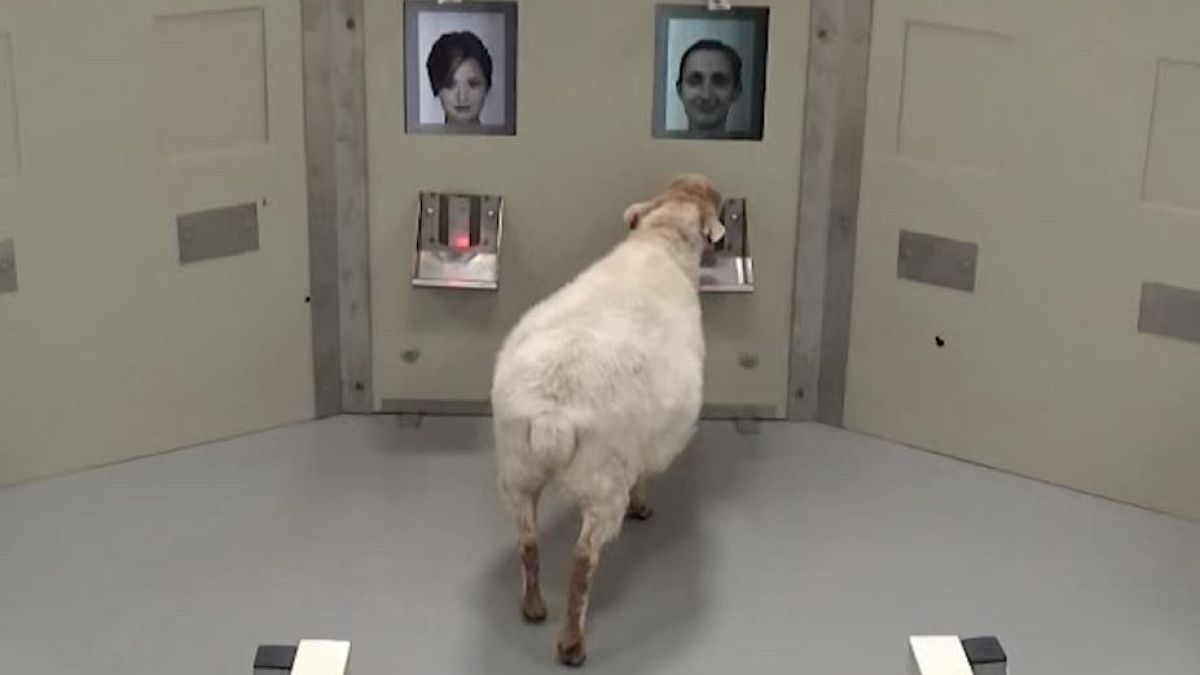Researchers claim they trained the animals to ‘identify’ the faces of celebrities.
Sheep can recognise human faces, according to a new study.
Researchers at Cambridge University claim they trained the animals to ‘identify’ the faces of celebrities, including US president Barack Obama.
In a specially-equipped pen, sheep were shown pictures of people on two computer screens. One side had an unknown person and the other one of four celebrities.
The animal received a food reward for choosing the photograph of the celebrity by breaking an infrared beam near the screen displaying it. If they chose the wrong photograph, a buzzer would sound and they would receive no reward.
The sheep eventually managed to identify the familiar face eight times out of every 10.
“Anyone who has spent time working with sheep will know that they are intelligent, individual animals who are able to recognise their handlers,” says Professor Jenny Morton, who led the study. “We’ve shown with our study that sheep have advanced face-recognition abilities, comparable with those of humans and monkeys.
“Sheep are long-lived and have brains that are similar in size and complexity to those of some monkeys. That means they can be useful models to help us understand disorders of the brain, such as Huntington’s disease, that develop over a long time and affect cognitive abilities. Our study gives us another way to monitor how these abilities change, particularly in sheep who carry the gene mutation that causes Huntington’s disease.”
In addition to being shown images of the celebrities facing forward, scientists also tested the animals’ ability to recognise the faces in photographs taken from other angles.
The animals’ success rate fell by around 15 percent when presented with the faces at a new angle, an amount researchers said was comparable to that seen when humans perform the task.
